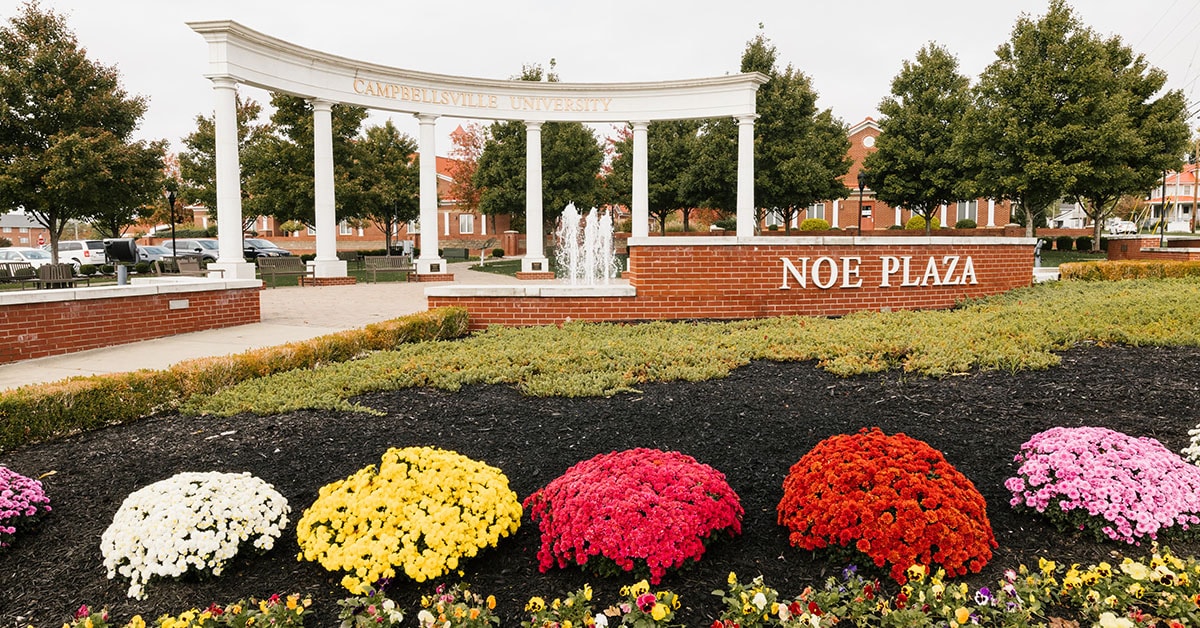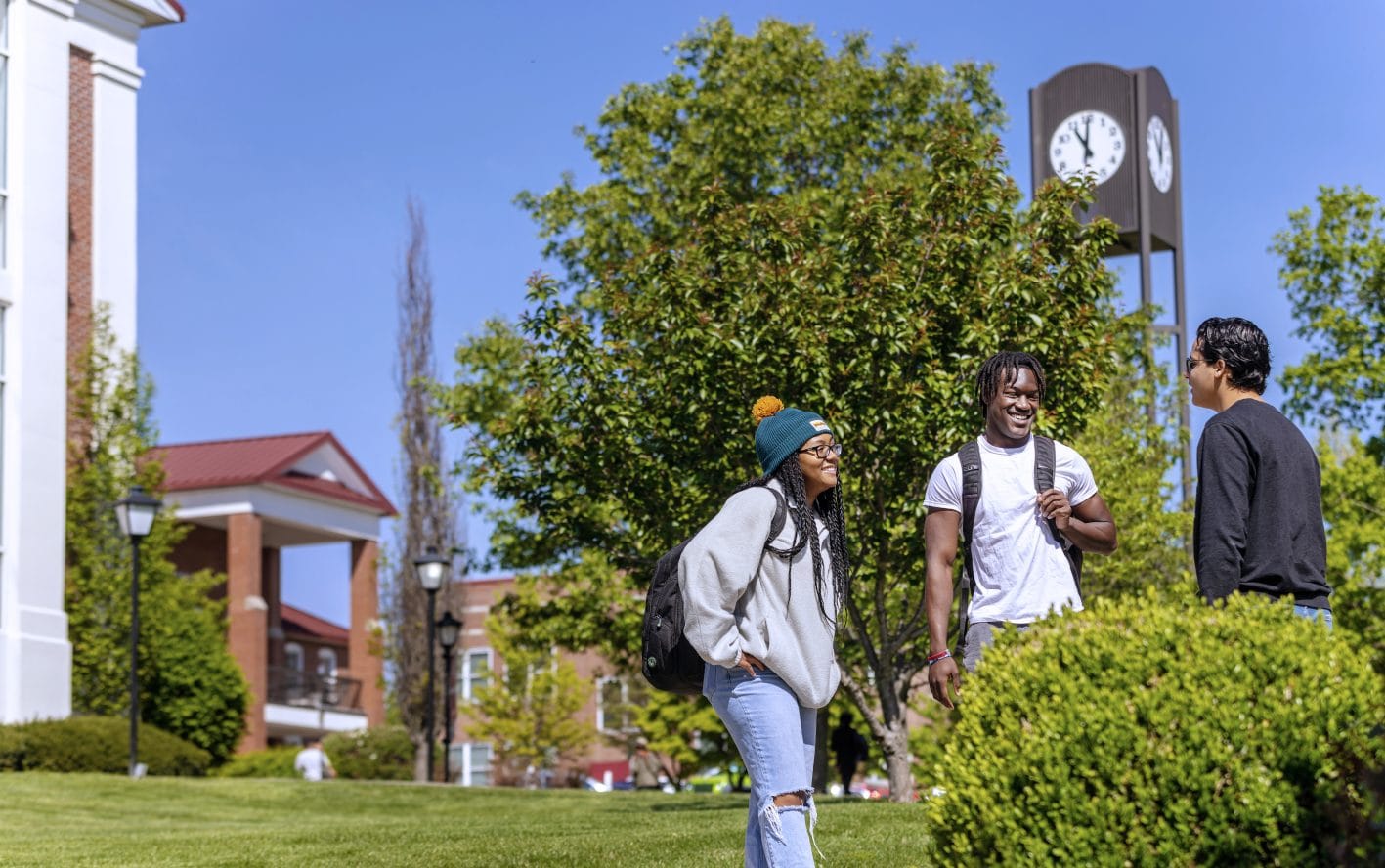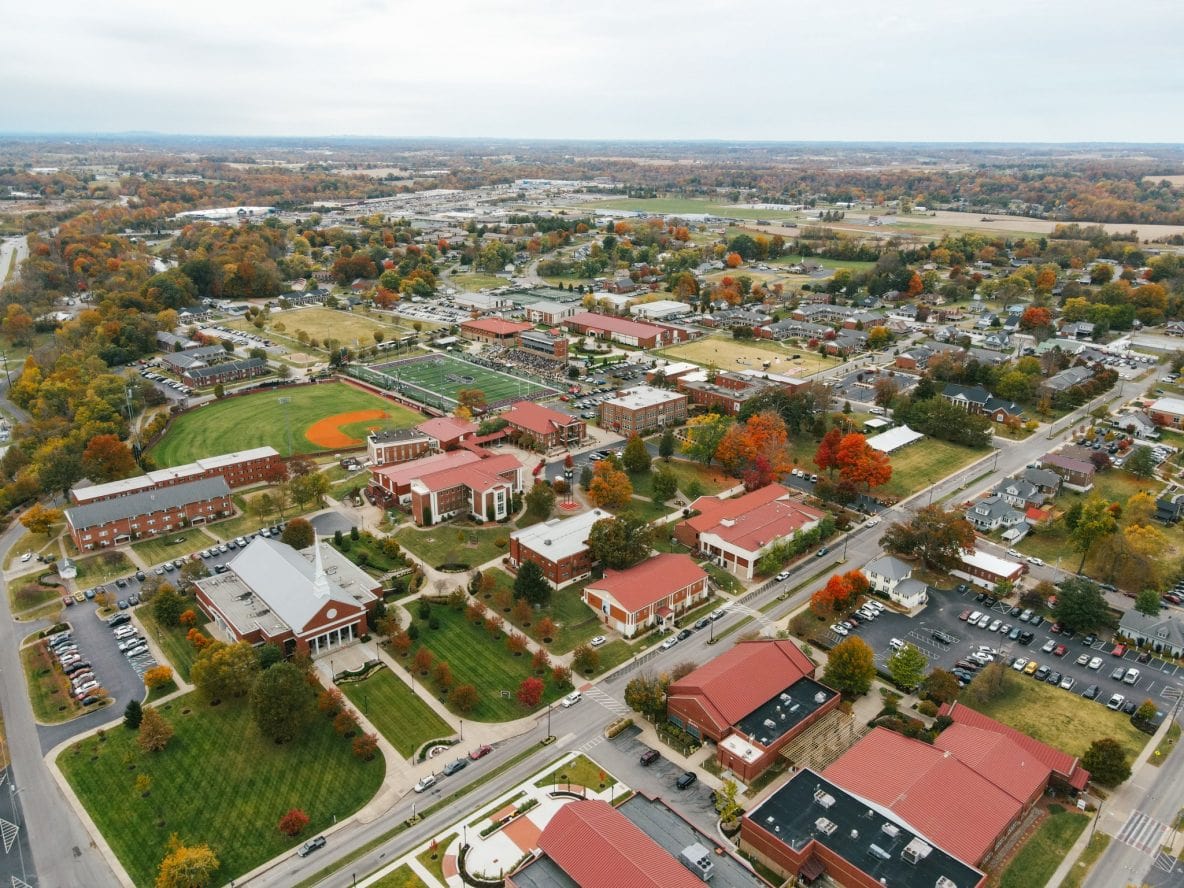Campbellsville University
Campbellsville, Kentucky
Find your calling. Build your craft. Campbellsville pairs small-college attention with a practical, do-the-work approach to learning. Students move early and often from classroom theory into schools, clinics, studios, and labs, building a body of real experience before senior year. The result is an education that feels lived, not just learned.
Grounded in a Christian liberal-arts tradition, CU treats purpose as part of preparation. Ethics, service, and community show up in how courses are taught and where students apply their skills. A CU education is one centered on character, competence, and service in a welcoming, values-forward environment.
Get to know Campbellsville University
College Highlights
Campbellsville treats experience as part of the curriculum, not an add-on. From the first year forward, courses fold in fieldwork, labs, simulations, service projects, and internships so students practice their craft in real settings, building judgment, confidence, and a portfolio of work before senior year.
Teacher-prep majors begin with observations and finish with a full-time, capstone student-teaching semester alongside a cooperating teacher. Nursing students split time between high-fidelity simulation and clinical rotations with regional healthcare partners, debriefing decisions to strengthen clinical judgment. Computing majors progress into cybersecurity and digital forensics labs that mirror real incident response. Across programs, community partnerships with places like schools, hospitals, nonprofits, and local businesses altogether turn course projects into résumé-ready experience.
ENROLLMENT BY ETHNICITY
Non-U.S. Citizen: 35%
Hispanic/Latine: 1%
Black or African American, non-Hispanic: 6%
White, non-Hispanic: 50%
Native/Indigenous American or Alaska Native, non-Hispanic: 0%
Asian, non-Hispanic: 2%
Native Hawaiian or other Pacific Islander, non-Hispanic: 0%
Two or more races, non-Hispanic: 0%
Race and/or ethnicity unknown: 5%
Instruction at Campbellsville is personal and practical. Small classes make space for discussion, quick feedback, and hands-on work. In education, methods courses are taught alongside school placements so lesson design and classroom management are learned where they matter. In nursing, high-fidelity simulation is paired with clinical rotations and guided debriefs that help students connect decisions to patient outcomes. Computing courses emphasize build cycles and code reviews, asking students to design, test, and iterate rather than turn in one-off assignments.
Mentorship shows up in the rhythm of a semester: professors workshop drafts before practicum interviews, review care plans after simulations, and sit with teams to untangle bugs or refine presentations. Students leave with habits that transfer, including clear writing, professional communication, and collaborative problem-solving.
Campus life is active: student orgs, music and theatre, intramurals, and Tigers athletics build quick entry points for leadership. You don’t have to wait to be a senior to run something; Student Government and activities boards hand students real budgets and real decisions.
The region doubles as a lab. Schools provide practicum hours, hospitals host clinicals, nonprofits and small businesses line up internships. Faith- and service-forward options exist, but plenty of purely professional pathways do too. Every student has the chance to shape a community life that fits their goals.
Career & Professional Development keeps the next step practical: one-on-one coaching, résumé and interview prep, employer events, and Handshake listings that map to local partners. Many offers come from the same classrooms, clinics, and offices where students completed fieldwork.
Graduates step into education, healthcare, tech, business, and nonprofit roles with supervisors who already know their work. It’s an outcomes model built on evidence you can show: lesson plans taught, patients cared for, code shipped, campaigns delivered, and the judgment and character to keep learning on the job.
Admissions
TEST SCORES
Optional
Tuition & Cost
Tuition: $28,618
Fees: $500
Room & Board: $9,392
Contact Campbellsville University
Contact Admissions
campbellsville.edu/admission-and-aid
(270) 789-5220
admissions@campbellsville.edu
Campus Location
1 University Dr.
Campbellsville, KY 42718
(800) 264-6014



